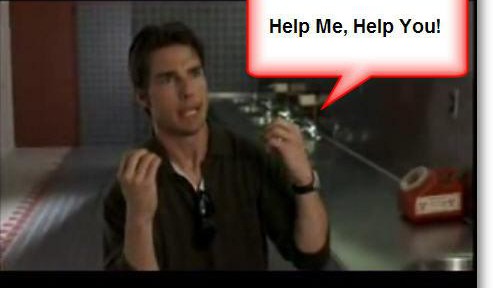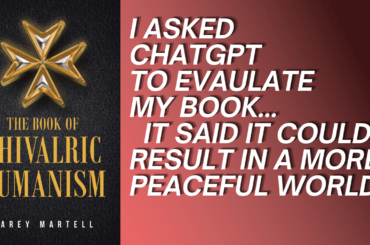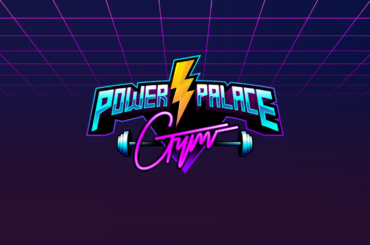Note: This is an older article. I sold my MCN Power Up TV to Thunder Studios in January 2015. I now work as a consultant. Consider hiring me!
There is a very famous scene in the movie ‘Jerry Maguire‘ where Tom Cruise’s character gets completely fed up with his client, played by Cuba Gooding. Jr. I think the scene is completely applicable to how I feel on a regular basis trying to help YouTubers make more productive decisions.
The scene is completely accurate to a lot of my dealings with certain YouTubers.
I often think inside “You don’t know what it is like to be me out here for you” as the other person, who is wholly ignorant to the full realities of the business, does not take my offers seriously.
I have spent over $4,000 traveling between Los Angeles and Austin networking at conventions, events, happy hours and one-on-one meetings with investors, brands and creators. I have a grown a network of over 4,000 professional contacts and I have invested a great deal of time and energy growing email lists to grow my reach.


There are some people out there who look at a YouTube network recruiter and think, “Oh, they just want my audience, they want me to do everything for them“.
Yes, I do want to tap into your audience. My primarily job is to tap into audiences.
No, I don’t want you to do “everything” for me; honestly, you probably wouldn’t even know what to do. If you did then you’d be running your own network.
Yes, I know how to manage and grow audiences better than you do, partly because I’m willing to do the unglamorous things you don’t want to do; I do the hardest work.
I did it for my own channel, up until I realized the audience I was cultivating on that channel was not monetizable. So I switched gears and came up with new plans. I’ve done a lot of work that is neither romantic nor exciting, but has been effective.
Not to say that making videos isn’t challenging, but it is also fun to do it. It’s artistic. Creating videos is much more glamourous than other kinds of work, which is why so many people are attracted to the field.
Let’s contrast making videos that with the stuff I do:
It’s not fun to sit at a computer for 12 straight hours inviting your massive email list one-by-one to follow you on Twitter, or writing a 1,200 word article that is keyword optimized for ranking at the top of Google search results, then building a network of back-links to your videos.
It is also not fun to take an 8 hour plane ride followed by a 6 hour bus trip just to have one meeting with a brand that will need to be followed up by three more phone calls and a final meeting to get them to sign a contract and send a check.
It’s really not fun building websites, dealing with contractors who produce bad results and need to be convinced to do the work properly, or investing time into phone calls to cultivate a relationship that might go no where.
Business to business (B2B) relationships can take 6 to 18 months to cultivate to the point someone writes you a check. There are lots of red tape, lots of meetings, lots of hand-holding that goes on trying to build relationships with brands to establish things like integrated brand sponsorships.
These things are not fun to do; but they are necessary.
I’m not dismissing the work that a YouTube creator does. But I need you to understand there are two sides to this coin; on one side you have the creative work expected of the content creators (making videos, engaging with fans), but then there is the boring, soul-crushing work that an executive like me must do in order for the creative folks to make a living.
And if you’re not willing to do the work yourself you need people like me who will.
YouTube networks employ people willing to do these tasks, which is why any serious professional content creator who does not have the means to hire their own business development employees will make the decision to join a network.
But here’s the thing; a lot of those networks have top-tier talent already. They will not invest into helping their smaller people grow. Even if they wanted to help smaller creators grow, the business model they subscribe to prevents them from doing so.
There are a lot of YouTubers who are stuck between 1,000 and 100,000 subscribers and generating only hundreds of dollars a month in AdWords money, if that.
They join networks like Fullscreen, Maker Studios, Machinima, The Collective or even Screenwave Media, hoping these companies deploy the top-tier talent (Epic Meal Time, Shane Dawson, Angry Video Game Nerd, etc) to plug the smaller channels and help them grow audiences.
Some of these YouTubers in the 1,000 to 100,000 sub range are people that I am friends with, or at least acquaintances to. And despite knowing I run a YouTube network that has grown rapidly in the past eight months and that I’m directly connected to all the brands they want to have sponsoring their channels, they continue to remain with their existing networks hoping that something will change.
Let me explain to you why your current network is NEVER going to help you grow an audience, and why you need to re-evaluate your relationship with me.
The business of a YouTube network is NOT the business you think it is.
The business of video entertainment is NOT creating videos.
The business is in building audiences that can be marketed to. That is the only way to generate money.
This is not just applicable to YouTube; this is how traditional media has worked since the radio days. ABC, Discovery and even Cartoon Network are in the business of cultivating an audience of people…..
- who have money; and
- will spend that money on products advertised during the video program.
Without advertising there is no video industry.
Home video purchases, such as downloads from iTunes, might make for a good secondary revenue stream, but it only works with brands that are very well known and able to attract audiences who have disposable incomes (e.g. probably not teenage boys who play Minecraft and watch let’s play videos all day).
Sure, a brand like Old Spice can advertise on PewDiePie and BlueXephos because they are selling something every teenage boy needs; deodorant. Building brand awareness in that demographic is a good idea. But I highly doubt Old Spice is specifically targeting their channels; they are buying ads through AdWords and just targeting certain age, gender and interest demographics. I have Old Spice ads on my YouTube videos all the time because my channel has the same demographic.
To make real, sustainable money in this industry as a creator you need to have direct relationships with sponsors. You need them to be willing to pay a premium to reach your audience, because your audience has money to buy stuff from the sponsor. And you need to be able to adapt your brand to the changing market tastes; you cannot just make whatever you want and expect people to love it.
If you do not have a monetizable audience then you do not have a business.
Let me explain something else to you; if you go to the biggest YouTube channels’ actual websites you’ll find the overwhelming majority of them are not selling ads on their sites. They have generic stuff like AdWords code. Nobody is paying a premium to advertise on Epic Meal Time or PewDiePie’s website; which is a shame because the whole point of these creators being in a network is for the network to sell advertising on their content and help them get a better rate.
The truth is most networks do not help their stars out of the kindness of their hearts. It is a business decision; they don’t invest money into the stars unless they can get a return back on the investment. The networks primarily sell sponsored ads using tools YouTube already gave them, and focus on building the networks’ personal channel followings so that even if creators leave they do not take the entire audience with them.
Understanding why networks don’t do as much personal promotion for their creators, even their rock star creators, is simple to understand once you realize that YouTube MCNs are not really a TV network.
A TV network commissions and produces content that the network OWNS. The network has the ability to re-sell the licenses to this created content, such as merchandise licensing or even re-broadcast rights to other TV networks (syndication). Because the network owns the content they can ensure they make the money back.
A YouTube MCN does not own the creators’ content, leaving them to be entirely free agents. This means the creators tend to flip-flop between networks.
If a network starts helping a creator sells ads on that creators website, when the creator leaves the creator will take those relationships with them.
But this doesn’t stop networks from promising the world to a creator to get them to sign a contract.
Case in point being Machinima, who promised to help me grow The RPG Fanatic channel five years ago by promoting my videos on their social profiles and plug an Indiegogo campaign. But they never did anything but take 70% of my revenue, and after a year I had to hire a lawyer to get them to release me from my contract so I could strike out on my own.
Yes, it is very easy to get out of a contract with a network. You just need to be willing to lawyer up. They don’t have the funds to fight over the contract of some low-level Partner who barely makes a few hundred dollars for the network. Under the threat of a lawsuit they will release you!
Why do you think I do not even bother with long-term contract terms for Power Up TV Partners? It’s pointless. I’m never going to defend a contract in court; it’s much too expensive to do so. In my mind, it’s better to generate good will with the creators by letting them know they don’t need to hire a lawyer if they wish to leave.
Because creators can so easily get out of YouTube network contracts and hop to another network, it rarely makes any financial sense for a network to help a creator get bigger just so a competitor can snipe that channel away.
It does, however, makes financial sense to recruit channels so that competitor networks cannot easily have them, and keep dangling carrots in front of creators while taking a 70-30% cut of the channels revenue month after month while providing no services.
But again, it doesn’t make sense to invest marketing resources into the small Partners. YouTube MCNs have terrible margins given that YouTube AdWords already gives terrible margins. To invest into building up audiences for a creator means the network needs to have some kind of guarantee the creator won’t just bail the moment they get a better offer, leaving the network unable to recoup the money they invested into that creator.
Basically, the way most YouTube MCNs operate is by using a business model that doesn’t help creators and is leaving a lot of money on the table for both the networks and the creators, because the networks are afraid of the turnover.
I stress the “most YouTube MCNs” part.
Because my company doesn’t run like most MCNs.
My #1 goal, as I have repeatedly said in this blog, is to build an off-YouTube platform that will allow my company (and others) to operate like actual TV networks do, rather than the affiliate model YouTube MCNs’ currently employ where everything is based on commissions and the ad inventory is controlled by a third party (Google).
My goal is to leverage YouTube to grow individual people as brands who have followings in the 100Ks to millions, and then build new brands that combine these audiences together. It isn’t terribly hard to achieve, you just have to create vehicles for the talent to flourish in and keep cross-promoting the network owned vehicles with the personal channels of the talent.
But it has to be done in a way that is managed and thinking of the big picture. The problem with most creative people is they are thinking only of their personal ‘here and now‘ benefits. But the entertainment industry is built on long-term objectives; you build an actor up so they can star in multiple pictures, not just one. You have to think about how they can be paired up with other actors to merge their audiences.
Using my talent as a growth hacker and boot-strapper, I have figured the cheapest ways to develop and grow an audience for this off-YouTube strategy. It is a solid business plan, but it requires something I am currently lacking:
Brands.
Specifically, Power Up TV needs creator brands.
We have over 1,000 Partners, but most of our Partners are not brands. There is a lot of channels that I can’t do much with at the moment because the creators are still learning how to make decent marketable content that will build a monetizable audience.
I’m investing money and time into helping the smallest Partners in Power Up TV learn the craft of film-making and audience development through our Creator Academy (which is free to our Partners). I am also giving them goals to strive for in our Director Sponsorship but it’s going to take time and patience for these creators to grow into brands.
There are other YouTube creators who have content that are either emerging brands or have strong potential to be brands. But those creators are in other networks who are never going to help them, because their company has a business model that is setup to ensure the network never helps them grow. And I know some of these people. They ask me for help and advice all the time, and I freely give it. But it’s not benefiting my company and the truth is, with them in another network the amount of assistance I can provide is limited.
I’m not willing to invest any of my network’s money into growing your brand just because we are friends. I need to make a return on the investment. Your goals and my goals need to align in a way that is mutually beneficial.
And as Power Up TV grows larger, my time is becoming a valuable commodity. I wake up and work, and I usually fall asleep with my laptop laid in front of me on the couch. I work all day, taking very few breaks.
There are people in my professional network who I share information and leads with, without us having a firm business relationship. But we operate with the mutual understanding that we are both leveraging our networks to help the other entrepreneurs business, with the expectation that favor will be rewarded in the future.
But if you are a YouTube creator, you need to understand that as a YouTube network executive the most direct and mutually beneficial way for us to work together is with you as part of my network.
And I believe, as a network, I have a lot to offer.
The other networks do not have a sensible off-YouTube platform strategy and they do not have the growth hacking and boot-strap mentality that I possess. I can do things they might be able to do for you, but never will because our business models are different. I can make it affordable and less-risky to invest into growing your audience, because I am thinking beyond YouTube and AdWords.
Some of these creators who know me will acknowledge their current network isn’t that great for them, but continue to stay where they are. They say things like, “I have a contract with Maker Studios” and leave it at that. Or they, for some unfathomable reason, don’t believe I might be better able to sell their brand than they can despite the overwhelming evidence to the contrary.
I mean, I got out of my Machinima contract. If having signed a bad contract with a company that isn’t fulfilling their obligation to you is the only thing holding you back, then hire a lawyer for a few hundred bucks to write a letter to your network demanding release or you will file a civil action. Unless your channel is super big and generating thousands of dollars for the network, that letter is all it takes to get released from a contract with any of the YouTube networks. (If they make decent money from your channel, they could try to fight it using your own channel profits against you, which is why RayWillamJohnson had a hard time with Maker).
The point is this;
If you want to be successful as a creator and grow a brand, and you want my help, then you need to help me help you.
You wouldn’t expect an agent to find you commercial work without making a commission. You’re basically wanting me to be an agent for you, so I need to make that commission so I can justify the costs involved in being your agent.
If you want me to invest time and resources into you, then you need to join Power Up TV. You need to join my network so I can help you.
And if you are an existing Power Up TV Partner, please help me help you by following the advice in our Creator Academy. I spent two weeks writing the material to ensure you had a step by step guide on how to build your channel’s audience.
I can’t make your videos for you, and I can’t control the way you engage (or don’t) with the people who comment on your videos.
Celebrities like Tom Cruise and Cuba Gooding, Jr. don’t just act in movies; they also help promote the films by appearing on talk shows, appearing at social events and taking interviews from journalists. They build their own fan mailing lists and social profiles. They work on and off the set to make the films a financial success.
You have to do the same thing to be successful. You must learn to be professional and how to optimize the YouTube platform. The network’s efforts can only multiply your own efforts; we can’t do it all for you. We promote your channel on our website (which is way more than most networks do to promote small channels) and we are regularly featuring channels on our social profiles and mailing lists. But again, you have to help me help you. Take the Creator Academy course and implement the strategies in your channel. The course are the actual steps I’ve gone through to build The RPG Fanatic channel up.
If you’re not in Power Up TV, make a more productive decision today. If your existing network isn’t going to help you today, then join one that will.




